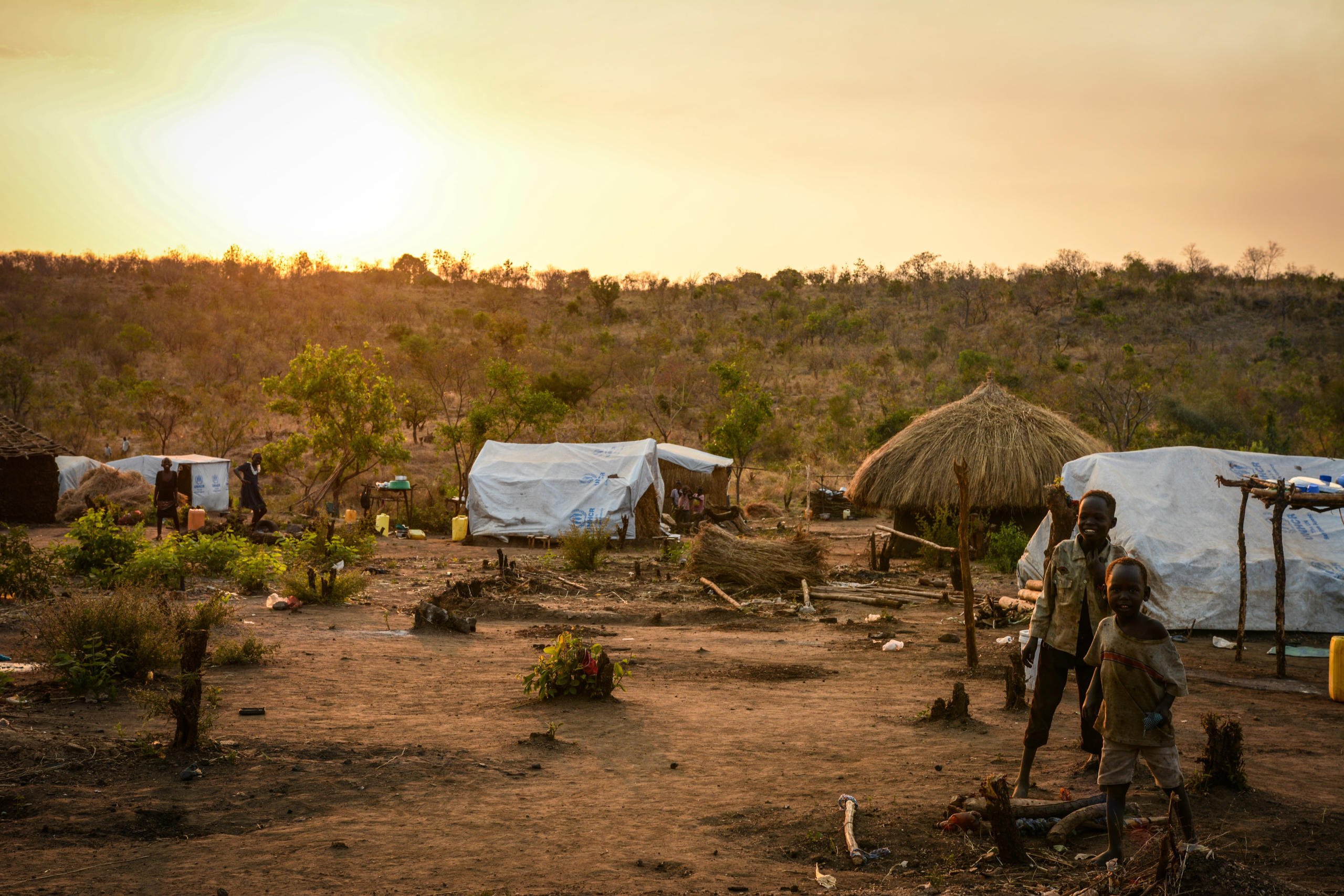I fjor tok Uganda imot rundt en halv million flyktninger fra Sør-Sudan. Over 270.000 sørsudanere kom til Bidibidi, som på kort tid ble én av verdens største flyktningbosetninger.
Landet huser fra før et høyt antall flyktninger fra Burundi og DR Kongo, og til sammen har det tatt imot nærmere én million flyktninger.
Likevel fortsetter Uganda å holde dørene åpne, helt i tråd med Flyktningkonvensjonen.
Vi har bedt fem ugandere og fem sørsudanere fortelle om hvordan Uganda ønsker flyktningene velkommen:
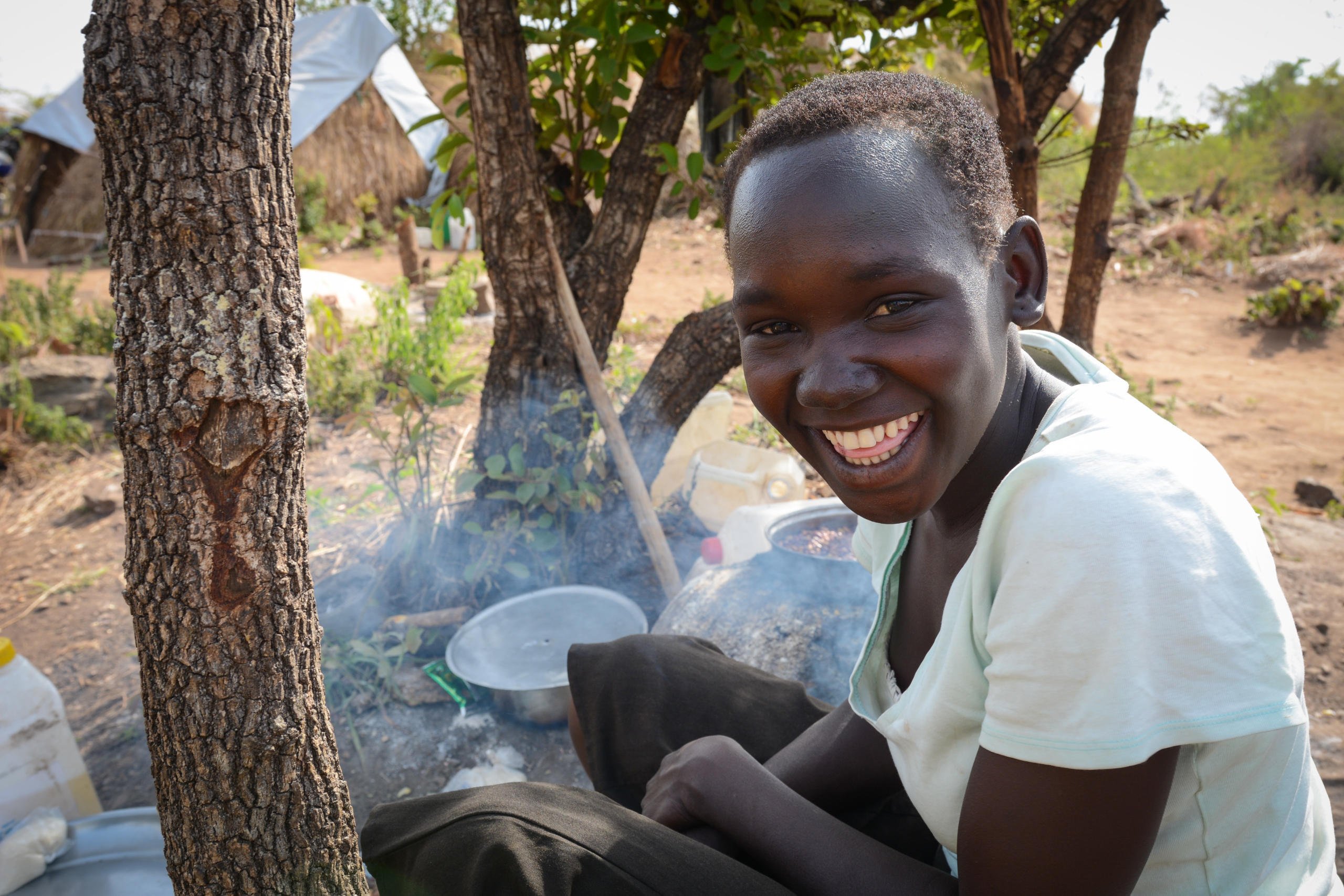
Mary Kiden
Mary Kiden (17) flyktet fra Yei i Sør-Sudan i oktober sammen med brødrene og søstrene sine. Nå bor de i Bidibidi-bosetningen i Uganda.
– Det er godt å være i Uganda. De ga oss et stykke land, vi har fri tilgang til helsetjenester og vi føler oss trygge. Folk ble drept i Sør-Sudan. Det gjorde meg redd. Her trenger vi ikke høre lyden av skudd, sier hun.
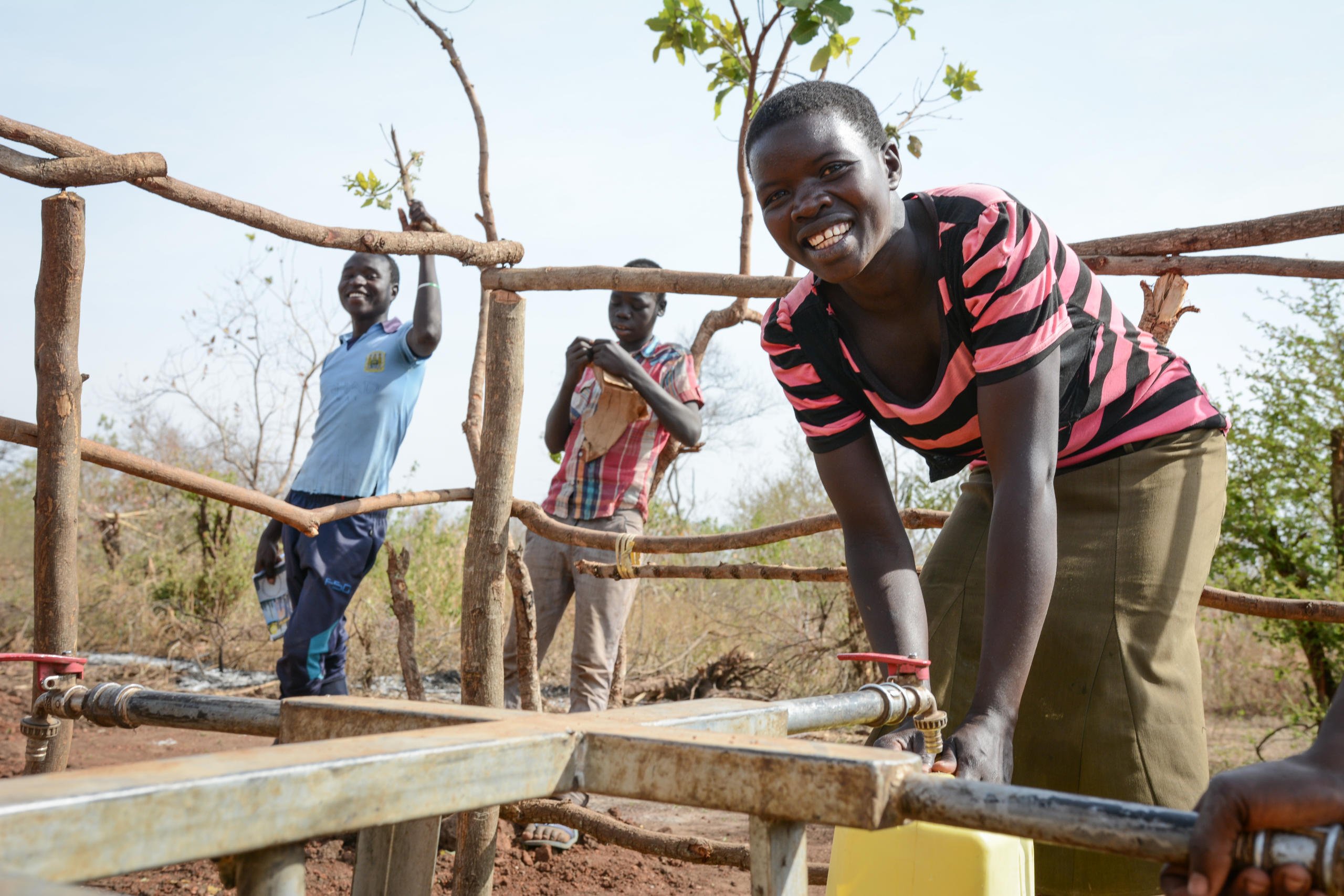
Florens Ajone
Florens Ajone henter vann fra brønnen som Flyktninghjelpen har bygget i Bidibidi-bosetningen. Hun flyktet fra konflikten i Sør-Sudan i 2016.
– Vi dro på grunn av drapene. De slaktet mennesker ned, og vi forlot Yei i frykt for hva som kunne skje om vi ble værende der, forteller hun.
– Veiene var stengt og det var vanskelig å komme seg hit. Nå har vi det bra. Vi hører ikke skudd og vi er trygge.
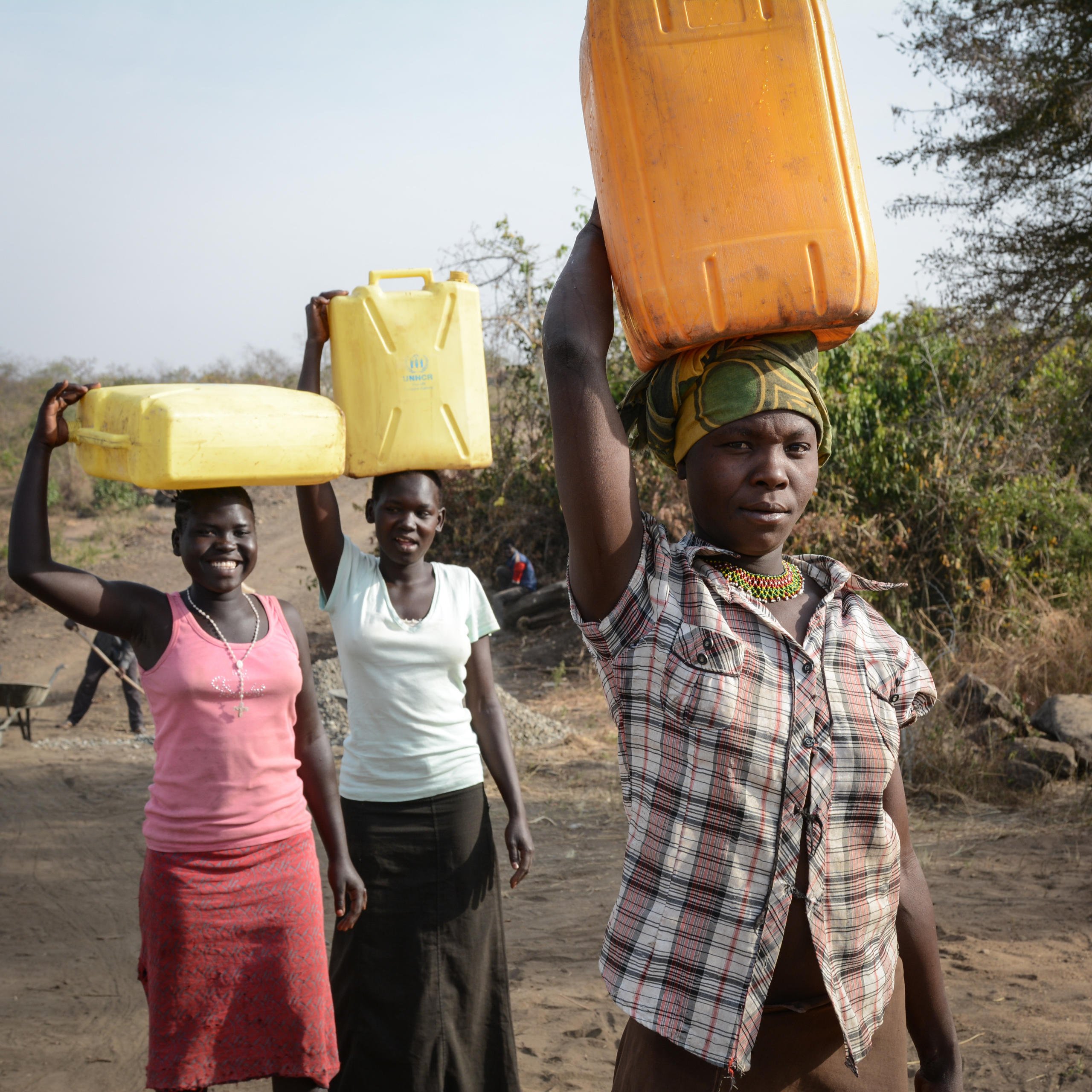
Never Rukia
Never Rukia (28) fra Uganda henter vann sammen med Mary Kiden (17) og Christin Awate (16) fra Sør-Sudan. Både flyktningene og lokalbefolkningen bruker den nye brønnen i Bidibidi.
Never ønsker flyktningene velkommen til nabolaget.
– Vi tjener på det, vi også. Det selges for eksempel flere varer på markedet nå. Og nå har alle tilgang til rent vann, ikke bare flyktningene. Jeg synes vi skal bo sammen i harmoni og dele på ressursene, sier hun.
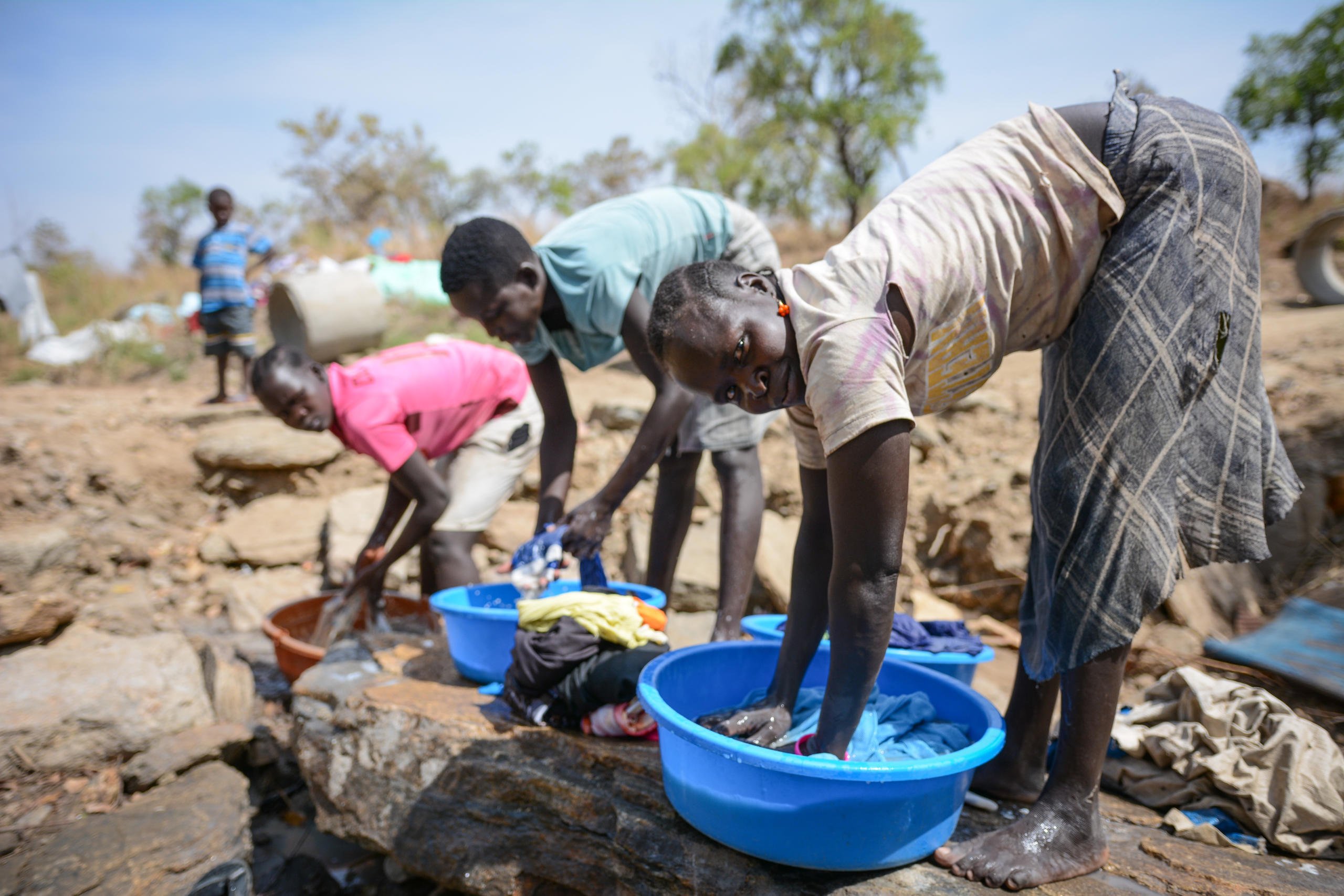
Apai Regina
Apai Regina (25) vasker klær i Bidibidi. Sammen med familien flyktet hun fra Juba i fjor høst og kom til Uganda i oktober 2016.
– Mannen min ble drept under flukten til Uganda. Nå er jeg her alene, og gjør mitt beste for å ta vare på de tre barna mine, sier hun.
Hun ønsker at barna skal få vokse opp i trygghet.
– Jeg trenger ikke frykte for barna mine her. Jeg føler meg trygg. Det eneste problemet mitt nå, er å skaffe mat. Jeg vil ikke at de skal gå sultne, sier hun.
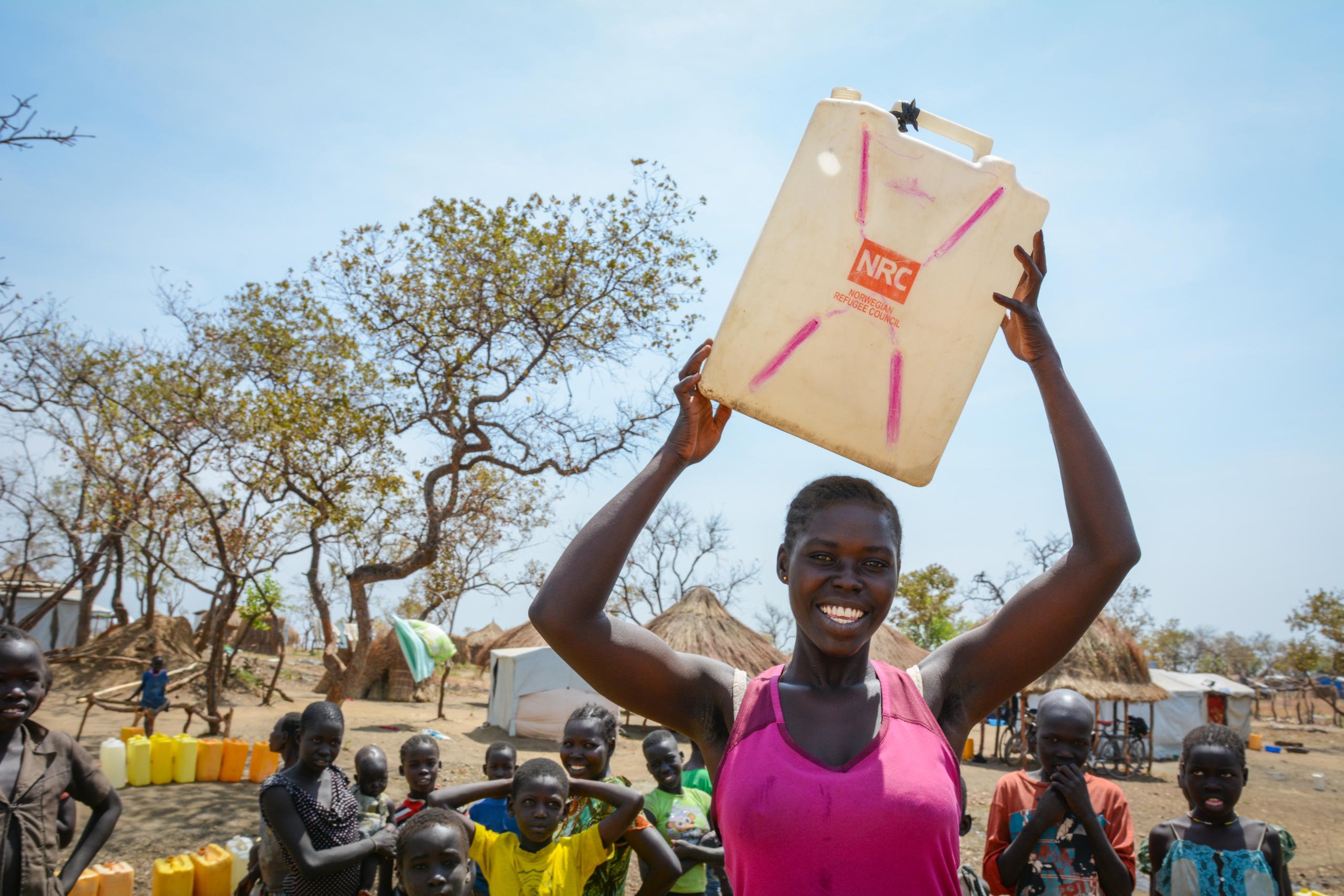
Angelina
Angelina (23) hadde nettopp tatt sin siste eksamen i Sør-Sudan da hun måtte flykte i all hast.
– Det er første gang jeg har forlatt landet mitt. Men det er greit å være i Uganda. Vi ble ønsket velkommen med mat og et stykke land som vi kunne bo på, sier hun.
Hun håper likevel å kunne reise tilbake til hjemlandet en dag.
– Nå må vi be for fred i Sør-Sudan.
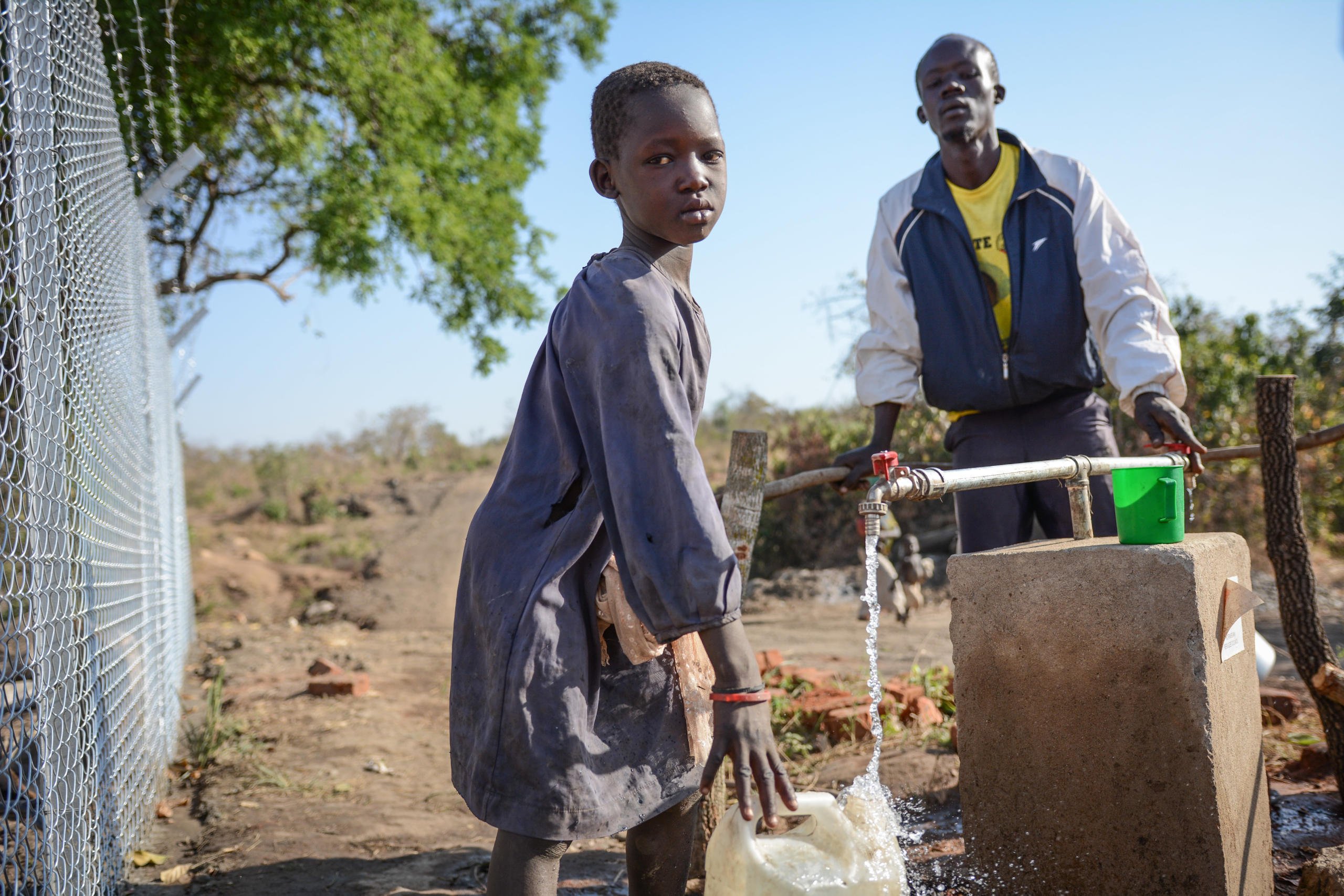
Mafoukana Kajoube
Mafoukana Kajoube og datteren Ajiko Zuhari (8) fra Uganda henter vann fra samme brønn som flyktningene fra Sør-Sudan.
– Det er en god tradisjon Uganda har, det at vi tar i mot flyktninger. Det er en måte å redde liv på, sier Mafoukana.
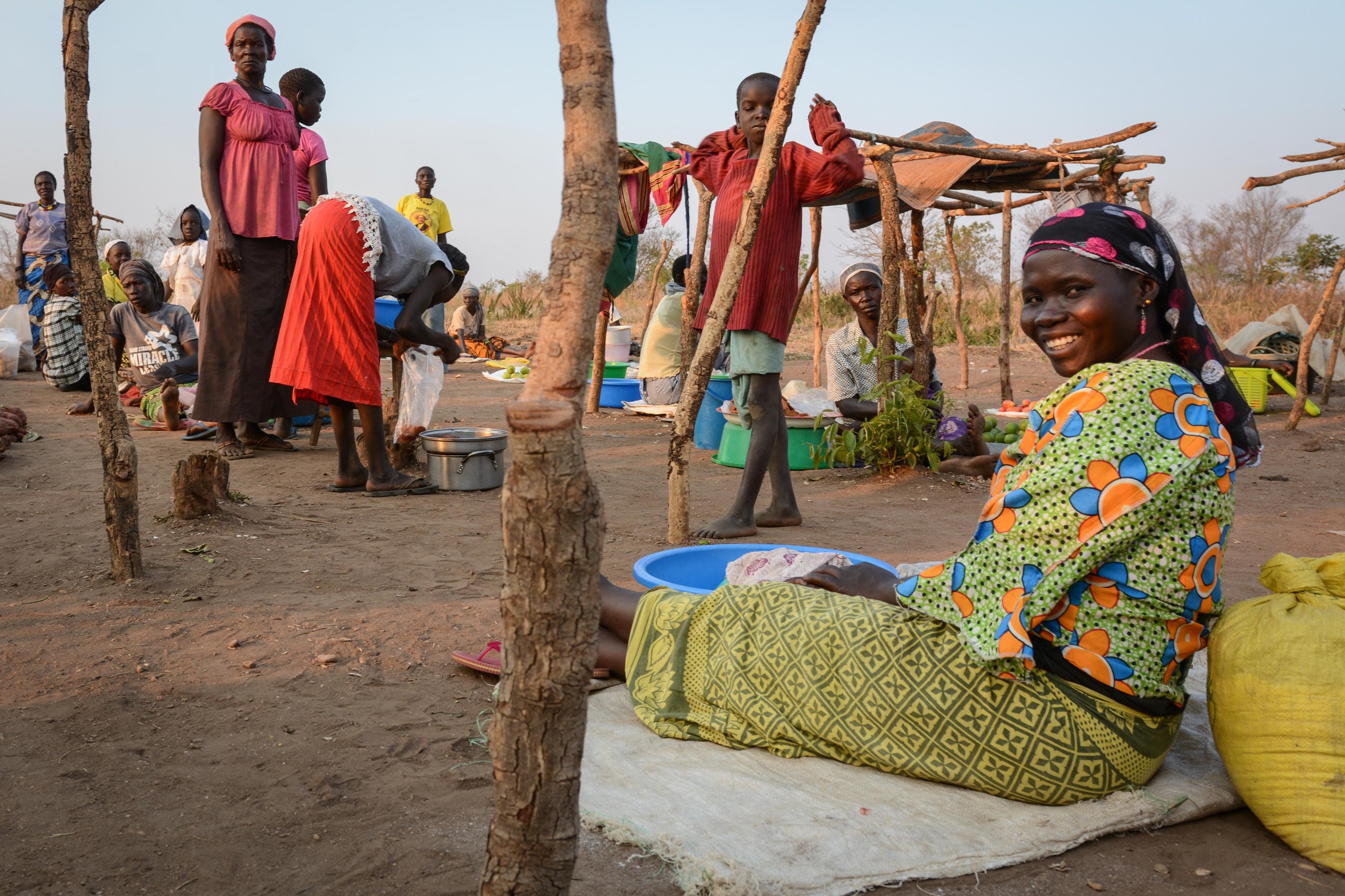
Markom Malima
Markom Malima i Uganda selger klær på markedet i Bidibidi, hvor flyktninger fra Sør-Sudan og lokale ugandere møtes for å kjøpe og selge mat og andre varer.
– Jeg er glad for at flyktningene har kommet hit, og ønsker dem velkommen. De har hatt det vanskelig og vi må gi dem sikkerhet. Og handelen på markedet øker. Det er bra å få nye kunder og selgere, sier hun.
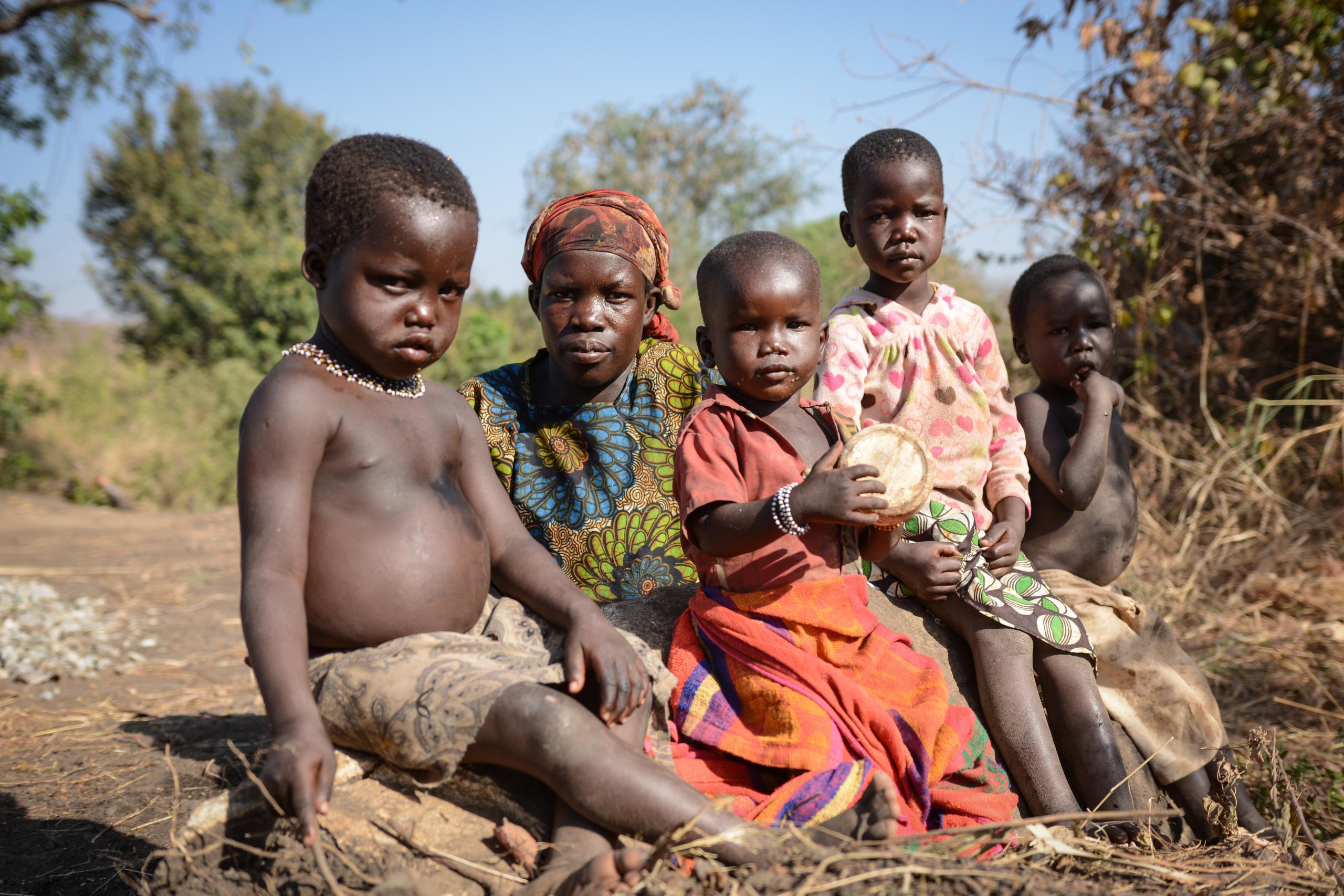
Ochgoro Somra
Ochgoro Somra og barna hennes Farida (4), Siragi (2), Mondoro Farida (4) og Shahid (3) bodde i Bidibidi før flyktningene kom. Nå har de 270.000 nye naboer.
– Først var vi her mer eller mindre alene. Nå har vi sørsudanske flyktninger overalt rundt oss. Barna har fått nye venner. De har til og med plukket opp noen ord på sørsudanske språk, ler Ochgoro Somra.

Mafero Lilian
I fjor mistet Mafero Lilian mannen sin i krigen i Sør-Sudan. Nå har hun klart å bringe seg Junia Masad (2) og de fire andre barna sine i sikkerhet i Uganda.
Det er fint å være her. Vi er trygge og uganderne er veldig gjestfrie, sier Mafero.
Hun håper hun får mulighet til å drive en liten butikk, slik at hun kan få råd til å kjøpe det hun trenger av husholdningsartikler.
– Jeg håper at vi kan få litt støtte til å begynne å tjene egne penger, slik at vi i framtiden kan forsørge oss selv, og ikke være avhengige av humanitær hjelp. Det ville vært mye bedre, sier hun.
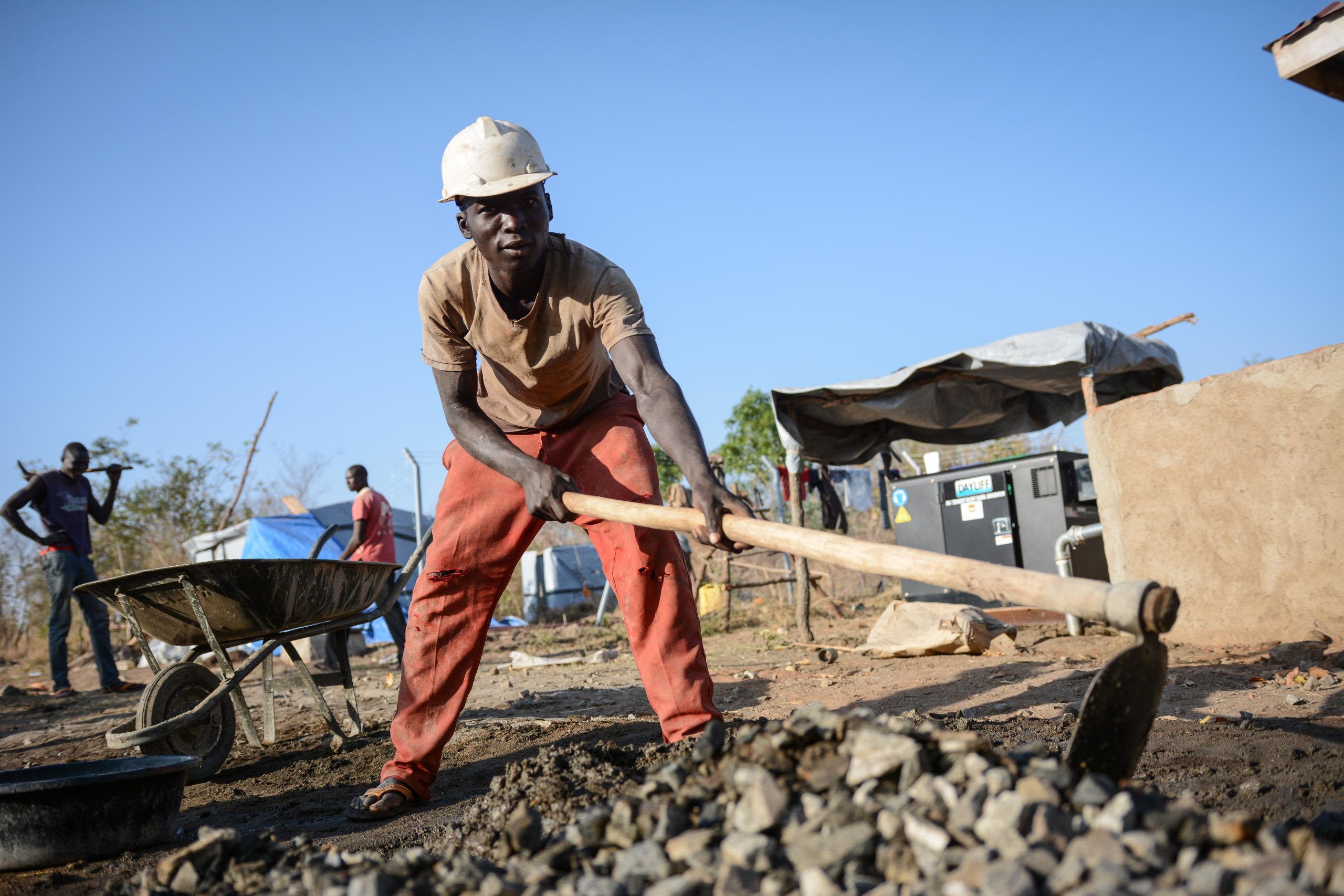
Patrik
Patrik (23) er byggearbeider fra Uganda, og ansatt for å bygge en motorisert brønn som vil gi vann til sørsudanske flyktninger og ugandere i lokalsamfunnet i Bidibidi i Uganda.
– Uganda tjener også på å ta i mot flyktninger. Infrastrukturen utvikles og skoler bygges til fordel for alle. Den store strømmen av flyktninger skaper også nye arbeidsplasser, sier han.


